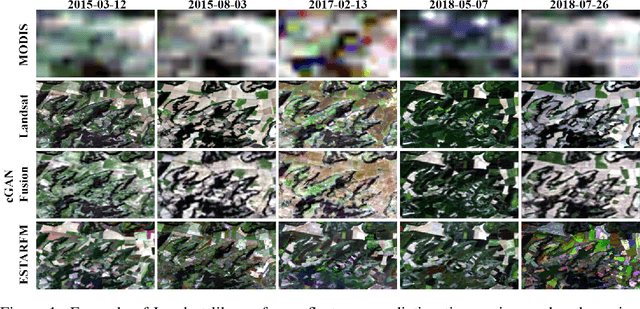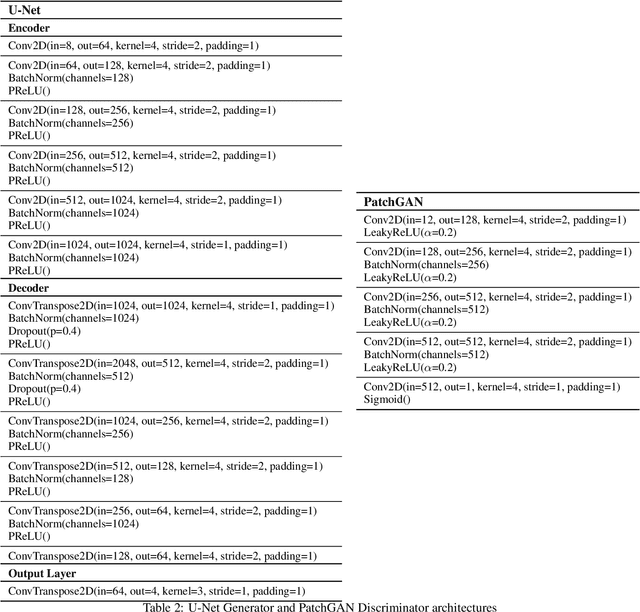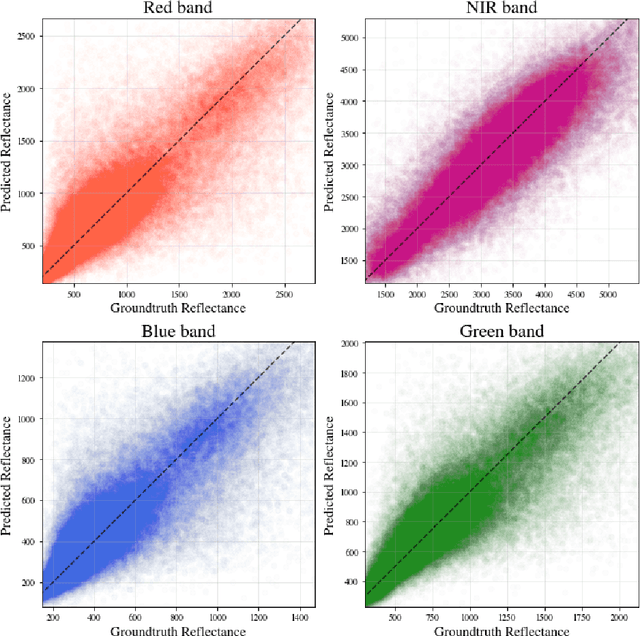Maxim Chernetskiy
Predicting Landsat Reflectance with Deep Generative Fusion
Nov 09, 2020



Abstract:Public satellite missions are commonly bound to a trade-off between spatial and temporal resolution as no single sensor provides fine-grained acquisitions with frequent coverage. This hinders their potential to assist vegetation monitoring or humanitarian actions, which require detecting rapid and detailed terrestrial surface changes. In this work, we probe the potential of deep generative models to produce high-resolution optical imagery by fusing products with different spatial and temporal characteristics. We introduce a dataset of co-registered Moderate Resolution Imaging Spectroradiometer (MODIS) and Landsat surface reflectance time series and demonstrate the ability of our generative model to blend coarse daily reflectance information into low-paced finer acquisitions. We benchmark our proposed model against state-of-the-art reflectance fusion algorithms.
 Add to Chrome
Add to Chrome Add to Firefox
Add to Firefox Add to Edge
Add to Edge